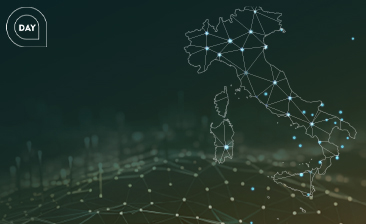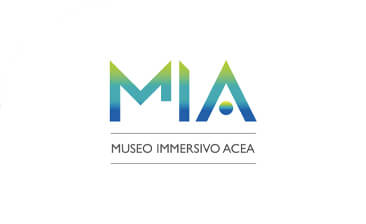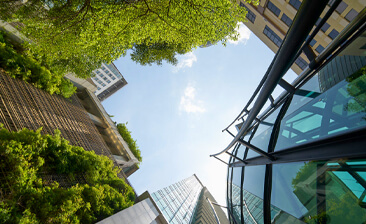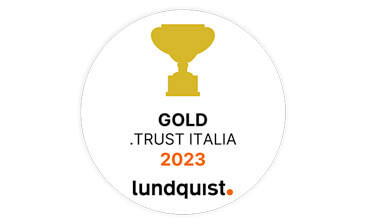
Acea for World Energy Saving Day
Natural resources are fundamental to everyone's life, indispensable for the well-being and development of society. It is therefore important to pursue a sustainable management of the natural resources at our disposal, in a context of preserving ecosystems and biodiversity.
In 2022, the world population reached 8 billion and is estimated to rise to 9.6 billion by 2050. To support this growth in a sustainable manner, it is important to increasingly improve the production model and consumption habits.
As far as production is concerned, a responsible approach can be taken by companies that are committed to reducing energy consumption, increasing the use of recycled materials, and generally reducing their environmental impact.
To contain consumption, it is necessary to use resources efficiently and redistribute them fairly among the population to reduce food, water and energy waste.
Responsible and conscious consumption of natural resources is necessary to ensure their preservation and to curb waste. Acea carries out numerous initiatives in support of SDG 12 of the 2030 Agenda in different areas.
For years, the Acea Group, through its company Acea Ambiente, has been committed to developing solutions related to the circular economy. The aim is to protect resources and nurture new production cycles to create a virtuous circle capable of regeneration.
Among these, the composting process enables the valorisation of organic waste with the production of compost that can be used as a soil conditioner and fertiliser in agriculture.
Acea manages a number of composting plants, in Aprilia, the largest in Lazio, in Sabaudia, Orvieto and Monterotondo Marittimo, the largest in Tuscany with anaerobic digestion, where quality compost is produced from the treatment of organic waste coming from separate collection as well as green waste and from the recovery of sludge from water purification.
Some of Acea's hubs, such as the one in Orvieto, feature energy production plants fuelled by biogas produced by the anaerobic digestion of waste. The energy produced and not used on site is fed into the electricity grid.
Furthermore, for the management of organic waste from large users Acea has created Acea Smart Comp, an innovative project that uses mini-composting plants equipped with sensors to transform wet waste into compost directly on site. This new approach makes it possible to eliminate the distance between the place where the waste is produced and the place of its treatment, with a consequent reduction in transport emissions.
An important role is also played by waste-to-energy, which is recognised as a necessary tool for progressing towards a circular economy, as it enables the recovery of unsorted waste, avoiding its disposal in landfills and generating energy. Acea is now the reference operator in central Italy with the Terni and San Vittore plants. Through this process, electricity can be generated from the combustion of waste, while at the same time reducing the volume of waste materials sent to landfills.
Acea Ambiente is among the main operators in Italy in the field of waste management, treatment and processing, with plants in central and northern Italy.
In line with its commitment to sustainable development, Acea Ambiente sorts, recycles and recovers various materials, including paper, iron, wood, plastic and metal as well as production waste and packaging. Disposal and recovery concern municipal waste (hazardous and non-hazardous) from separate collection from citizens, institutions and industries. Acea's Environment sector companies also deal with the purification of industrial wastewater and the treatment of liquid waste not collected through the sewerage system.
While urban wastewater purification activities are managed by the Group's Integrated Water Service companies in the regions where they operate.
With the aim of increasingly expanding its ability to intervene in waste cycle management Acea uses advanced technologies and develops projects with universities, research institutes and companies in the circular economy sector.
Confirming its commitment to environmental protection and reducing its environmental impact , the Acea Group has obtained a number of important certifications related to its environmental management system.
Furthermore, two Acea Ambiente projects received the EMAS Italy 2022 Award as best examples of circular economy: the first in the area of waste-to-energy treatment; the second project - in collaboration with the University of Tuscia - demonstrated how synthetic mineral fertiliser can be replaced with quality compost produced by treatment plants.
Reducing energy consumption and environmental impact with a view to a circular economy is, as we have seen, among the Acea Group's main objectives.
As far as water is concerned, for example, a constant activity to improve the efficiency of distribution networks and the research and recovery of leaks ensure the protection of this fundamental resource.
Acea also invests in the electricity distribution network to make it more resilient and flexible, with a view to energy efficiency. In addition, Acea offers services for the energy requalification of public and private buildings and for renewable energy communities.
According to the definition provided by the European Union, biodegradable waste includes all waste that is capable of undergoing physical, chemical, thermal or biological decomposition whereby most of the compound decomposes into carbon dioxide, biomass and water.
Biodegradable materials must therefore be able to dissolve into their constituent materials under natural environmental conditions, through the action of agents such as plants, animals, bacteria, sun or water.
A compostable material, on the other hand, is able to dissolve completely and independently through the process of composting (biological decomposition), which turns it into compost, i.e. fertiliser.
A compostable material, therefore, is also biodegradable, whereas the opposite is not always true.
Even the individual citizen can take simple daily actions to reduce his or her personal impact.
With regard to saving water waste can be reduced by, for example, turning off taps properly, maintaining them, using flow reducers, preferring showers to baths and, when possible, recycling water that has already been used.
For energy consumption, on the other hand, it is enough to monitor the use of household appliances, avoiding unnecessary use. For example, it is a good idea to use washing machines and dishwashers only when fully loaded; not to set the temperature of the refrigerator too low and avoid keeping it open for too long; the same principle applies to the oven, which should be opened as little as possible during cooking so as not to disperse heat unnecessarily.
The shared goal is to protect our resources and have an increasingly sustainable and environmentally friendly approach.
Discover the latest news and initiatives of the Acea Group

Acea for World Energy Saving Day

Visit the virtual museum about the history of the Acea Group

The channel for the commercial requests on land urbanisation

Acea turns the spotlight on the Rome Film Festival 2023

Acea is in the "Gold class" in the .trust research

Read more about our culture of inclusiveness